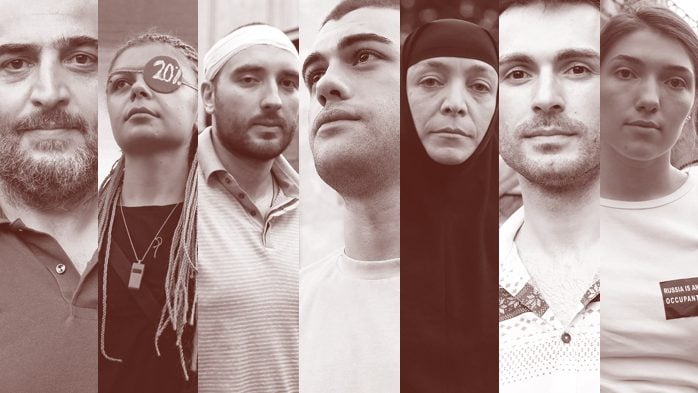Faces of Protest: People who animate Georgia now
Spontaneous protests that sprung up in Tbilisi starting June 20 have baffled many observers. These protests do not respond to by now habitual image of Georgian politics, divided largely between two irreconcilable partisan camps – Georgian Dream and United National Movement – and endlessly fragmented further down.
While party agendas are still present, current Tbilisi protests signify coming of age of the new class of citizen-activists, whose have no partisan loyalty. Some profess partisan sympathies that fall are outside the simplistic GD-UNM diarchy, others have no partisan sympathies at all. Yet, they have a strong sense of citizen duty, fiercely support Georgia’s independence and individual dignity.
With a hindsight, Tbilisi floods of 2015 might have been the first appearance of this new class of citizens. Many Tbilisites looked on in admiration as young women and men, often in their teens, came out to clean up the streets.
Through rallies about draconian drug laws, against police crackdown on Tbilisi nightclubs, numerous smaller solidarity marches, often pointedly non-partisan, these citizens have now come to a political age. Their agendas might have been alien to some, irritating for others, but it has come to pass: they now occupy the beating heart of Georgia’s direct democracy – Rustaveli Avenue – with clearly political demands that may yet re-shape Georgia’s political consensus.
240 people, including journalists and police officers, sustained injuries after the riot police dispersed the protesters. The Interior Ministry detained 305 persons for various criminal offences. Some of them were sentenced to administrative imprisonment, others were released.
We met and spoke to some of these leaders, as well as their elder supporters, wishing to introduce them to our readers.
Turn the page and scroll through their testimonies.
This post is also available in: Русский
